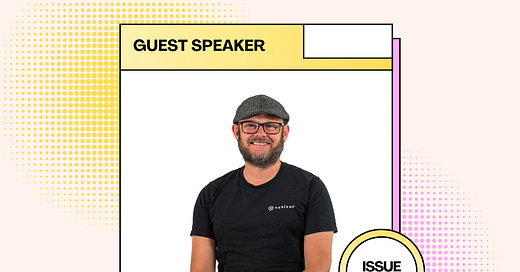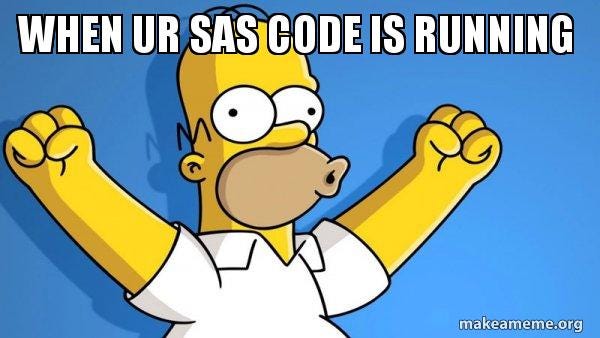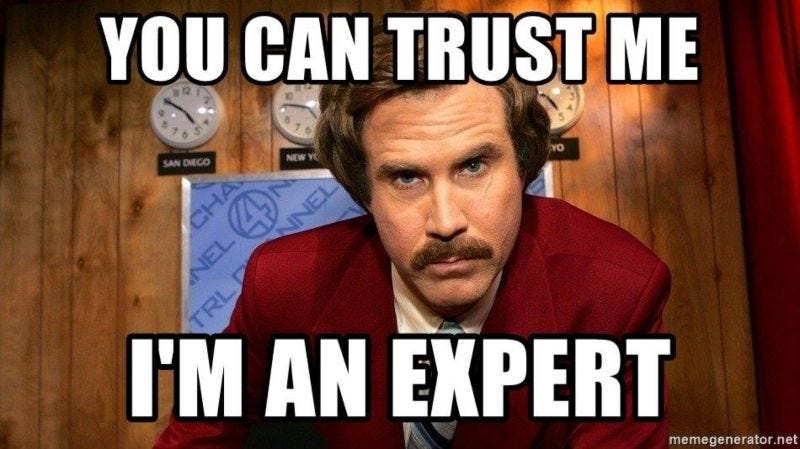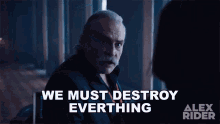Issue 004 - Meet Chris Love
Trust is foundational to building a data-driven culture. While technical skills are essential, people skills are equally crucial in data work.
In this week's Behind the Data spotlight, we introduce Chris Love, Client Solution Lead at The Information Lab and a seasoned data professional whose career journey is marked by resilience, community impact, and a drive to empower others with data insights.
Chris’s path to data began with a background in mathematics and an unexpected pivot into programming, where he discovered the world of data analytics and process automation.
Over time, his career evolved from a personal mastery of tools like Alteryx and Tableau to a broader, community-focused vision. Known for his commitment to data quality and advocacy for peer review, Chris brings a refreshing balance of technical expertise and creative problem-solving to his work. Through his dedication to mentoring, blogging, and building a culture of data-driven decision-making, Chris continually inspires others to embrace data’s transformative potential.
PS: Chris has been promoting Behind the Data ever since he read the first Issue.
Q1: What inspired you to pursue a career in data, and how has your motivation evolved over time?
A: I graduated with a degree in mathematics and, by the end of my PhD, found myself moving back home due to financial constraints. I was computer literate with some programming experience, so I started applying for programming roles.
One of the roles I applied for was a SAS programmer position as a Data Analyst. I got the job, but there wasn’t much programming involved—instead, I discovered a world of databases and data cubes.
I quickly became skilled at automating processes to make them faster and more efficient. After a couple of years, I started using Alteryx, which changed everything. I became an expert in the software, started blogging, and sharing my knowledge, which sparked a shift in my motivations toward a more community-focused approach.
Q2: Can you share a pivotal moment in your career that significantly shaped your approach to data?
A: Early in my career, my manager was very keen on peer reviews for any data that left our team. One night, while rushing to complete a project, I sent out data without it being checked, and, of course, it was incorrect. It wasn’t a huge mistake, but it did affect the client's trust and the internal trust in my work.
Since then, I’ve been a strong advocate for data quality and peer review. It’s hard to catch mistakes in your own work, and once you lose trust in your data, half the battle is already lost.
Q3: How do you balance the technical aspects of your role with the need for creative problem-solving?
A: This balance has been the cornerstone of my career. I use tools like Tableau and Alteryx that allow both my technical skills and creativity to flourish. Recently, I tried Power BI, and I found it limited me technically, disrupting that creative flow, which made it difficult to do my best work. This isn’t to critique any specific tool, but creativity is crucial for me in data work, and I perform best with tools I’m comfortable using. Maybe it’s just my age! 😄
Q4: Can you discuss a project where data insights led to unexpected outcomes or revelations?
A: I recently wrote about a project from a few years back when I was in Malta working for an online casino. I was there to meet the new Head of BI, and we were exploring data in Tableau as part of a week of dashboarding and training. At one point, we were looking at timelines of big winners.
Suddenly, he jumped up when we spotted some unusual spikes, suspecting someone was winning far too often. It looked like they were trying to defraud the company, and he ran out of the room to follow up with security.
While security had already flagged it, this experience demonstrated the power of visual analytics. Those insights would have been much harder to detect without visual exploration.
Q5: How do you foster a culture of data-driven decision-making within your team or organization?
A: Trust is foundational to building a data-driven culture. We begin by identifying the data the business needs to make decisions and setting up a pipeline to get it into users’ hands via trusted data sources.
At the same time, we need to provide the right tools and skills to maximize data’s potential. I’ve been writing on Substack about these very topics because they’re a huge passion of mine.
When people have access to trusted data, the right tools, and know how to use them, they can start uncovering their own insights. At that point, we can implement guardrails and governance to help them share insights effectively. It’s not a simple process, but when done right, it’s worth the investment.
Q6: What role does mentorship play in your career, and how have mentors influenced your journey?
A: My first boss, Simon Hamm, played a huge part in my career development. He invested in my skills and trusted me to handle projects outside my comfort zone, which built my confidence. Since then, I’ve developed a strong network of friends and colleagues in the industry, relying on them for advice. I also try to give back by blogging and mentoring those newer to data careers.
Q7: Can you reflect on a setback in your data career and what you learned from it?
A: I’ve spent the last few years in more sales-focused roles, helping organizations with software and data enablement. My biggest setbacks have come when others didn’t share my vision for the best approach, or when new leaders came in and dismantled elements I’d been helping clients build. Those moments were tough.
I’ve learned that different data leaders have unique approaches and that organizations have varying needs as they evolve. Sometimes a complete overhaul of a tool or approach can move the organization forward, even if it conflicts with your personal vision.
Q8: What are some key skills that are often overlooked in your field of data?
A: While technical skills are essential, people skills are equally crucial in data work. Leaders often understand this, but for those of us in the field, it can be hard to develop these skills, and we don’t always prioritize them as much as technical skills.
Q9: What do you love outside of data?
A: I’m a photographer. I love taking my camera out and capturing people and places. It’s a nice escape from the desk, though I don’t get out enough!
Q10: What resources (books, courses, tools) do you recommend for people to level up their skills?
A: Substack has been invaluable for me recently. There are articles on almost everything, and you can follow writers into their communities, user groups, and meetups. Take the time to connect with people in person—those personal connections are invaluable, and you can learn a lot.
Key Takeaways:
Trust and Data Quality Are Foundational: Chris emphasizes that trust and peer review are essential for data quality. Once trust is lost, gaining value from data insights becomes much harder.
People Skills Are Essential: Often overshadowed by technical expertise, people skills are vital in data work. Chris believes communication and collaboration enhance data’s impact, bridging gaps between data teams and stakeholders.
Creativity Fuels Effective Data Work: Tools that allow Chris to remain in a creative flow—like Tableau and Alteryx—are crucial to his process. Staying in this flow enables him to work more efficiently and with greater innovation.
Mentorship and Community Matter: From his first boss to colleagues across the industry, mentors have played a pivotal role in Chris’s career. Now, he gives back by mentoring others and contributing to the data community.
The Power of Visual Analytics: Chris’s experience spotting potential fraud during a visual analysis session underscores the unique power of visual analytics to uncover patterns and anomalies that might otherwise go unnoticed.
To connect with Chris and learn more about his approach to data, feel free to reach out to him on LinkedIn at Chris Love.
Best,
Ayoade Adegbite
Creator of Behind the Data











Another great story ! Nice to meet you Chris , Simon was really a great manager 😊
Lovely Story... Thank you for sharing ❤️